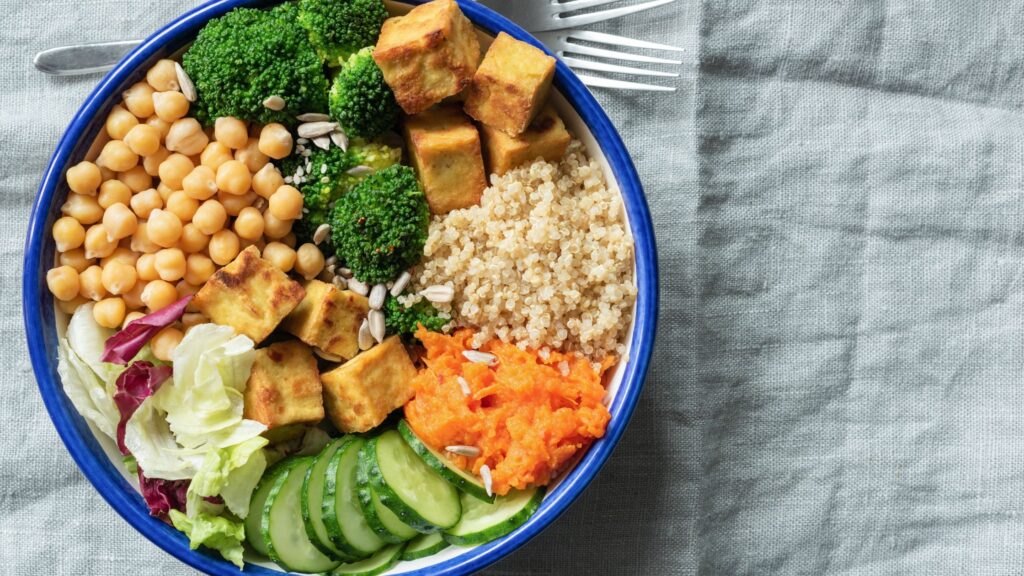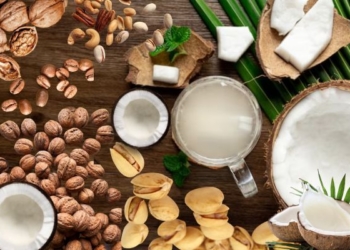Tofu, a popular soy-based food, has gained immense popularity in recent years due to its versatility and health benefits. As tofu continues to become a staple in many diets, there is often confusion surrounding its consumption, particularly whether it can be eaten raw.
In this article, we will explore the topic to eat raw tofu, addressing its safety, nutritional benefits, and guide various preparation and cooking methods.
What is Tofu?
Tofu, also known as bean curd, is a protein-rich food derived from soybeans. It is produced by curdling soy milk and then pressing the resulting curds into a solid block.
With its neutral taste and ability to absorb flavors, tofu has become a popular ingredient in various cuisines around the world. Its versatility allows it to be used in dishes ranging from stir-fries and soups to salads and desserts.
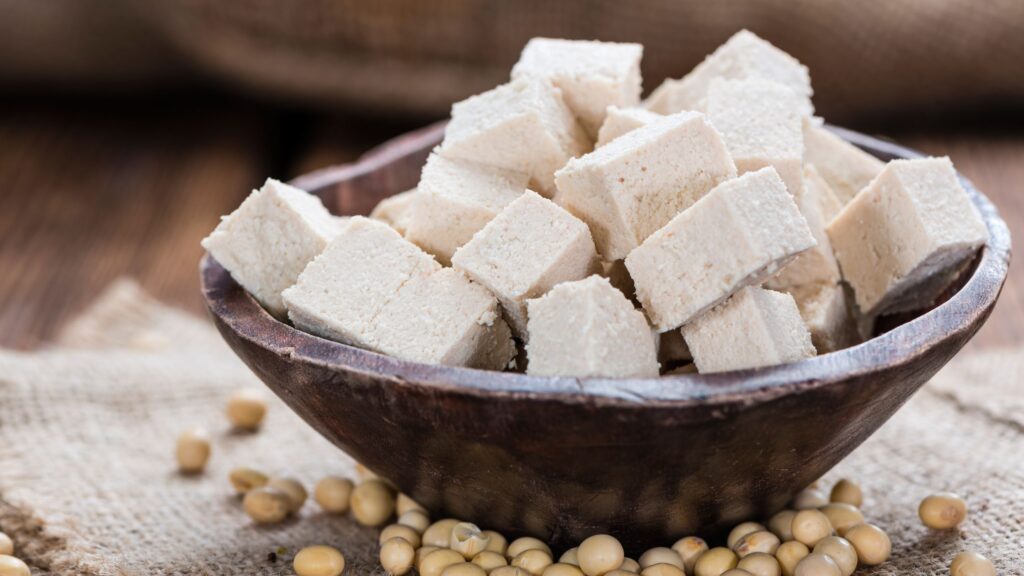
Raw Tofu: Is it Safe to Consume?
While tofu is generally safe to consume, there are some considerations when it comes to eating it raw. Raw tofu can be an ideal breeding ground for bacteria, including Salmonella or E. coli, which can cause foodborne illnesses.
However, the risk of contamination can be minimized by selecting high-quality tofu and maintaining proper food hygiene practices. It is crucial to ensure that the tofu you consume is fresh, properly stored, and has not exceeded its expiration date.
Contrary to popular belief, consuming raw tofu is generally safe for most individuals. Tofu itself undergoes a cooking process during its production, eliminating harmful bacteria. It is crucial to note that consuming raw tofu may not be as enjoyable in terms of taste and texture compared to cooked tofu.
Nutritional Benefits of Raw Tofu
Tofu is highly regarded for its impressive nutritional profile. It is an excellent source of plant-based protein, containing all essential amino acids required by the human body.
Raw tofu is a nutrient-dense food that provides a range of health benefits. It is an excellent source of plant-based protein which makes it a nutritional add-on to vegetarian as well as vegan diets. Also, tofu has iron, amino acids, calcium, and several other minerals. It is also a good source of antioxidants and contains no cholesterol.
However, cooking tofu can enhance its digestibility, making it easier for the body to absorb nutrients. Additionally, some research suggests that lightly cooking tofu may increase its antioxidant properties.
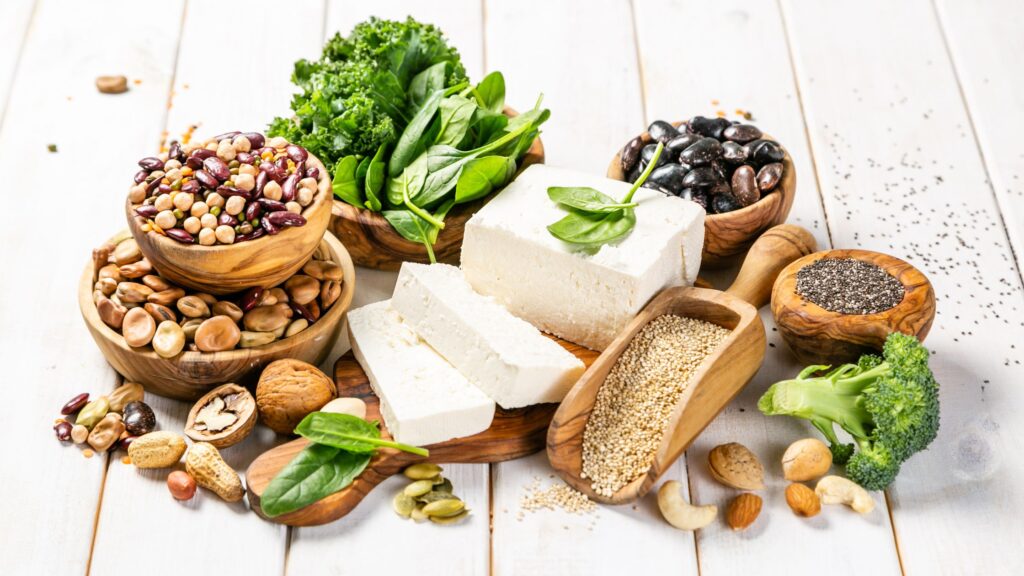
Risks and Precautions
Consuming raw tofu may present a few risks and precautions worth considering. Firstly, raw tofu contains naturally occurring antinutrients, such as trypsin inhibitors, which can interfere with protein digestion.
Cooking tofu helps reduce the levels of these compounds, making the protein more easily digestible. Secondly, some individuals may experience digestive discomfort when consuming raw tofu, as it can be harder to digest compared to cooked tofu.
If you decide to eat raw tofu, ensure that you are not allergic or intolerant to soy products. Allergies to soy are relatively common, and consuming raw tofu may trigger an allergic reaction in susceptible individuals. It is essential to consult with a healthcare professional if you have any concerns or a history of soy-related allergies.
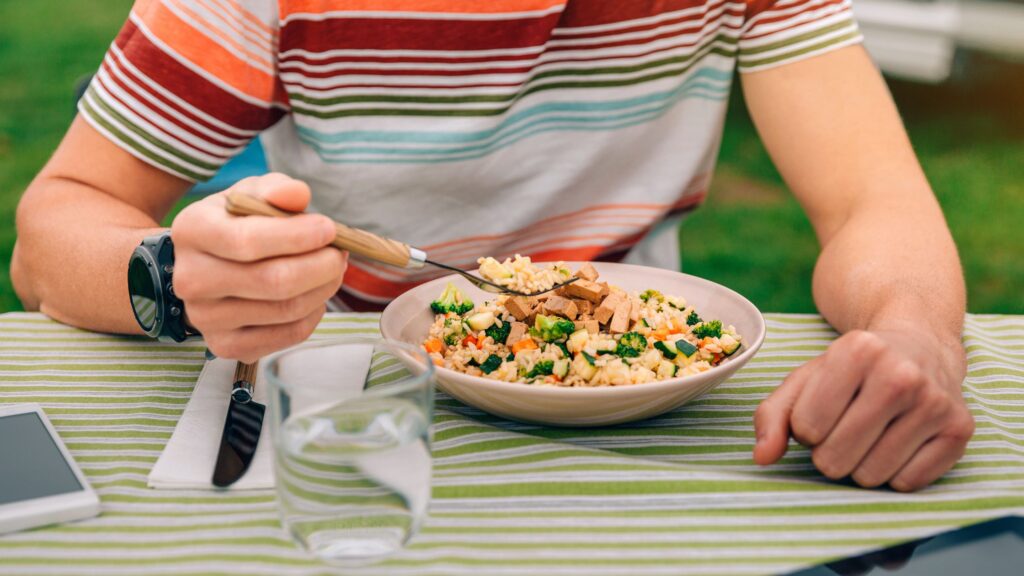
Delicious Ways to Enjoy Tofu
If you’re looking to enjoy the taste and texture of tofu, there are numerous delicious and nutritious ways to incorporate it into your meals.
Tofu can be marinated, baked, stir-fried, or added to soups and salads. It can be a fantastic addition to stir-fry dishes, used as a meat substitute in sandwiches or wraps, or even blended into creamy dressings or smoothies.
Cooking Tofu: Tips and Recipes
To enhance the taste and texture of tofu, cooking is often preferred. Here are a few tips for cooking tofu.
- Press the tofu to remove excess water before cooking to improve its texture.
- Marinate tofu with your choice of flavors and spices to infuse it with delicious tastes.
- Experiment with different cooking methods like frying, baking, or grilling to achieve varying textures and flavors.
You can also try out one of the best recipes for Tofu.

Crispy Baked Tofu Nuggets
Ingredients
- 1 block of firm tofu
- 2 tablespoons of soy sauce
- 1 tablespoon of maple syrup
- 1 teaspoon of garlic powder
- 1 teaspoon of paprika
- Salt and pepper to taste
Instructions
- Preheat your oven to 400°F. Further, line a baking sheet with parchment paper.
- Press the tofu and remove excess water.
- Cut the tofu into bite-sized pieces or nuggets.
- In a bowl, whisk together the soy sauce, maple syrup, garlic powder, paprika, salt, and pepper.
- Dip each tofu nugget into the marinade, ensuring they are evenly coated.
- Place the coated tofu nuggets on the prepared baking sheet.
- Bake for 20-25 minutes or until the tofu turns crispy and golden brown.
- Enjoy these nuggets with your favorite sauce.
The Bottom Line
Overall, while raw tofu is safe to consume, it may not be as enjoyable as cooked tofu due to its mild taste and soft texture. However, cooking tofu offers a variety of flavors, textures, and culinary possibilities.
By experimenting with different cooking methods and recipes, you can unlock the full potential of tofu and enjoy its nutritional benefits.
Frequently Asked Questions (FAQs)
- Is it safe to eat raw tofu?
Yes, consuming raw tofu is generally safe, but it may not be as enjoyable in terms of taste and texture.
- Can you cook tofu without pressing it?
While pressing tofu helps improve its texture, however, you can still cook tofu without pressing it if desired.
- Does tofu need to be refrigerated?
Yes, tofu should be refrigerated to maintain its freshness and prevent spoilage.
- Is tofu suitable for a gluten-free diet?
Tofu itself is gluten-free, but it’s essential to check the ingredients of any flavored or seasoned tofu products.
- Can tofu be frozen?
Yes, tofu can be frozen to extend its shelf life. Freezing alters the texture, making it more spongy and suitable for dishes like smoothies or tofu scrambles.

